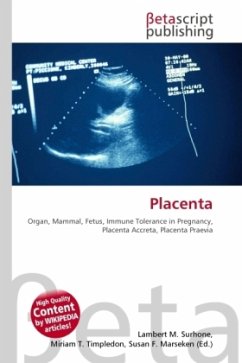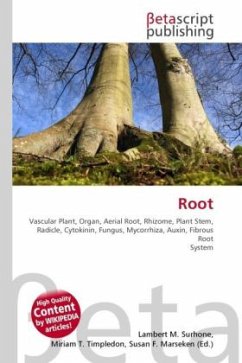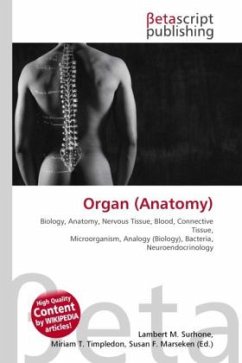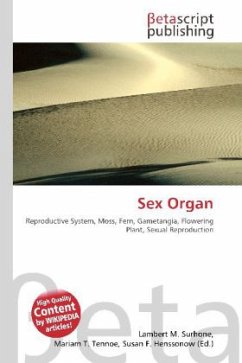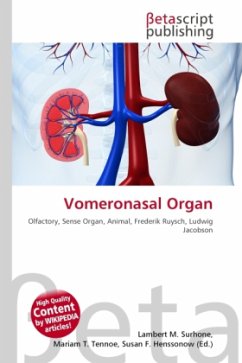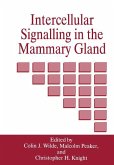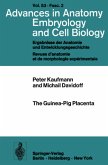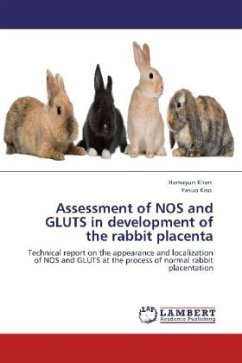High Quality Content by WIKIPEDIA articles! The placenta is an organ unique to mammals that connects the developing fetus to the uterine wall. The placenta supplies the fetus with oxygen and food, and allows fetal waste to be disposed via the maternal kidneys. The word placenta comes from the Latin for cake, from Greek plakóenta/plakoúnta, accusative of plakóeis/plakoús ? ????????, ???????, "flat, slab-like" in reference to its round, flat appearance in humans. Protherial and metatherial mammals produce a choriovitelline placenta that, while connected to the uterine wall, provides nutrients mainly derived from the egg sac. The placenta develops from the same sperm and egg cells that form the fetus, and functions as a fetomaternal organ with two components, the fetal part and the maternal part.
Bitte wählen Sie Ihr Anliegen aus.
Rechnungen
Retourenschein anfordern
Bestellstatus
Storno

